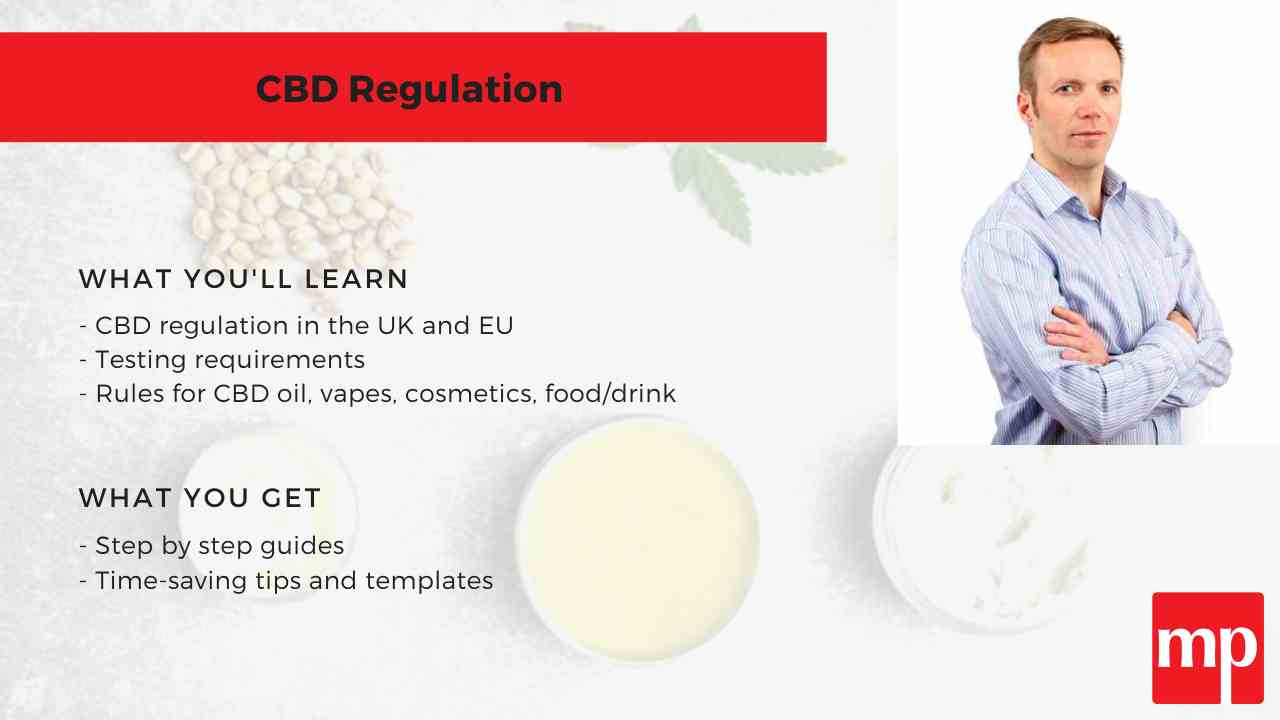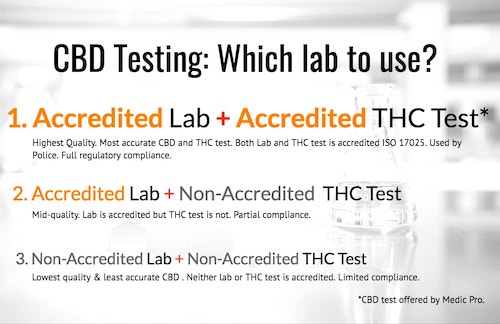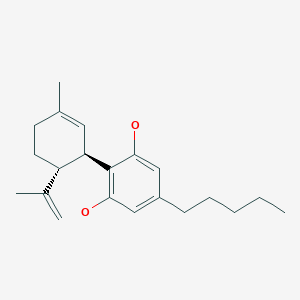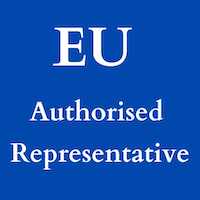CBD Testing
CBD Testing Services
We offer high quality CBD testing services to help manufacturers, importers and retailers comply with cannabidiol regulations in the UK and EU.
About our CBD testing service
Whether it is to confirm the CBD content of raw material from a supplier or to verify that the THC level is within the legal limits, our ISO accredited CBD testing service can deliver accurate results, fast.
Validated Test Methods
Using validated test methods, highly sensitive and specialised lab equipment, our testing service is designed to give you the confidence your CBD products comply with legal, safety and quality requirements.
Accredited CBD Testing Lab
CBD regulation is fast changing, so it is more important than ever to ensure your CBD oil undergoes testing at an ISO accredited lab. It will protect your company from future regulation, and leave your customers confident that you’re not cutting corners when it comes their safety.
World-leader in CBD testing
A world-leader in CBD testing, the lab has delivered CBD and THC potency testing services on a wide range of CBD and cannabis products including:
- CBD oil
- Cannabis plant material including flowers, leaves and pollen
- CBD isolate powder & crystals
- CBD e-liquid
- CBD tea
- CBD food including gummies & mints
- CBD patch (Both paper & fabric type)
- Hemp seed oil
CBD Testing Drinks & Encapsulated CBD
CBD drinks & Water soluble (encapsulated) CBD products: Unfortunately we cannot test water soluble CBD without knowing more about the encapsulation structure. The lab needs to understand the composition of the structure in order to break it down and get to the CBD/CBN and most manufacturers do not share that information with third parties.
What is CBD Testing?
CBD testing involves sending a sample to a specialist analytical laboratory that has the expertise and equipment to test CBD products. While there are many things you can test a CBD product for – pesticides, metals, solvents, mycotoxins etc – our research suggests two tests are absolutely critical: CBD and THC content.
Please note that this service is outsourced – Medic Pro Ltd does not carry out the testing.
Why do you need to test?
There are two key reasons for a CBD lab test. Firstly, you want to make sure you are compliant with CBD laws. This means ensuring the THC level is below the legal limit. The second reason is customer safety and satisfaction. You want to be sure the CBD content is not over the labelled amount or too far below. Too high and this is a health risk to your customer. Too low and your customers will not return.
Want to learn about CBD regulation and testing? Watch our online video guides.

The Stability of CBD
Active ingredients in medicines are sensitive to light, temperature and pressure. CBD is no different. From the moment it is extracted from the source plant, CBD begins to degrade. By the time it been processed into the finished product and reached the shelves, the CBD content in a CBD oil may have diminished to levels lower than what is considered acceptable.
Mislabelling of CBD products
For this reason, accurate testing to verify the true CBD content is key. The poor stability of CBD could be one of the reasons why we have seen mislabelling of CBD products in the US – something that is likely to be a real issue in the UK also. Read more about this issue in our blog post here.
THC Testing
Tetrahydrocannabinol – THC for short – is a controlled substance in the UK so it is essential raw material CBD is tested for THC to confirm only trace (very low) levels. Manufacturers should take extra care when choosing a lab for THC testing because, while there are numerous labs available in US and EU offering THC testing, not all offer high quality THC testing.
About Accreditation
CBD testing by an unaccredited lab with an unaccredited THC test puts your products at a higher risk of seizure by police or border control. The only way to be sure of the THC level of a product is to conduct accredited ISO 17025 THC testing, which is why it is the ‘go to’ test for the police. Accredited ISO testing involves using a well-established test method supported by rigorous method validation.
A Sign of Quality
An independent, government-approved body – the accreditation body – regularly verifies that the lab is following correct ISO procedures. Accreditation is a sign of quality and reliability so it is no surprise accredited THC testing used by the police in the UK and across the world.

What about testing for pesticides, solvents, metals, mycotoxins etc?
In our research, we found that most CBD raw material suppliers provided a certificate of analysis (test certificate) which quantified, to some extent, pesticides, solvents etc. While there may be some debate as to the accuracy of the individual tests, we consider that these are likely to be at low or trace levels until evidence suggests otherwise.
In light of this, we currently we recommend our clients take the certificate on face value and accept that the health risks are low, no more than an imported food product, which would be reasonable. Contact us if you have any concerns on this topic.
What about testing for other cannabinoids and terpenes?
Meaningful testing to quantify other cannabinoids such as CBG andCBC, given the very small quantities, can be difficult and costly. For the time being, we currently recommend to accept the results in the test report by the raw material supplier.
Which CBD testing lab to choose?
Globally there are now many CBD testing labs to choose from but they differ in one key aspect: Accreditation. And while a lab might be accredited they may not offer an accredited THC test. The highest quality test you can get (globally) is an accredited lab with an accredited THC test (the one used by the police and the service offered by Medic Pro).
When choosing a lab your options are:
- Accredited lab + accredited THC test (Notes: highest quality; both the lab and THC is accredited; most accurate CBD and THC test; used by police; full regulatory compliance),
- Accredited lab but non-accredited THC test (mid-quality; lab is accredited but the THC test is not; modest accuracy; partial compliance),
- Non-accredited lab and THC test (lowest quality & accuracy; neither lab or THC test accredited; limited compliance with regulations).
Our CBD testing services offer the highest quality CBD testing: Accredited lab running an accredited THC test.
CBD Testing Price
The price of CBD testing depends on a number of factors:
- Test method
- Equipment
- Accreditation of Test
- Accreditation of Lab
- Lab/technicians experience
- Additional services offered
CBD Test Method & Equipment
A number of test methods are available for CBD analysis including GC-MS, HPLC and UPLC. Some CBD testing services offer ‘semi-quantitative’ methods such as GC-MS which essentially means they are not highly accurate.
Our CBD Test Methods
To verify CBD and THC content our lab uses highly sensitive Liquid Chromatography, which is more expensive but one of the most accurate methods on the market.
Avoid low cost CBD testing labs
Our advice when choosing a testing lab is to be wary of low cost CBD testing services. Cheap testing services are unlikely to give accurate CBD or THC testing results because the equipment used is likely to be unreliable, the technicians inexperienced and lab without accreditation status. It puts your products at risk of seizure should the THC analysis be inaccurate.
Choose independent CBD Testing
Rather than rely on you manufacturer’s/importers CBD testing, find an independent lab to undertake a test. All too often do we hear from an importer whose products have been seized at the border because they relied on on the manufacturers or reseller inaccurate lab test report.
Importance of Accredited ISO 17025 THC Testing
Because THC is a controlled substance, it is crucial that you verify the THC content of your products is at zero (as confirmed by test at lowest available limit of quantification). You may need to provide lab results to the police, Trading Standards or other authorities in which case only accredited lab testing can be relied upon.
Product seizures
Using an unaccredited lab or HPLC with limit of detection at 0.05% may lead to products seizure by the Border Force. This is because the test is not sensitive enough to detect low levels of THC. Accreditation is a sign of quality and reliability. Always verify THC level with an accredited ISO 17025 lab running an accredited THC test – this is the highest standard in the world.
Features of our CBD Testing service
- Accredited Lab: We offer CBD and THC testing at an accredited ISO 17025 analytical laboratory.
- Accredited THC Test: Our THC test is highly sensitive and ISO 17025 accredited – equivalent to police THC test.
- CBD Test Certificate: Get a Test Certificate with your CBD lab results to show customers.
- Fast & Reliable Service: We oversee the lab testing to ensure everything is in order and lab results are delivered on time.
Cannabinoids included:
- THC
- THCA
- CBD
- CBDA
- CBN
- CBNA
- CBD-V
- THC-V
- CBG
- CBGA
- CBC
- CBCA
- CBL
- CBDVA
- THCVA
- CBNA
Total CBD & Total THC reported
How the CBD lab testing service works:
- Send an enquiry here
- Respond to our email confirming your order.
- Make your payment and despatch samples to address below
- We will confirm receipt and forward samples to CBD testing lab
- The lab results are released and a Test Certificate is sent
We’ll keep you posted about the progress.
Address to send samples:
Medic Pro Limited
(To be confirmed at point of order)
Fast & Reliable Service
We work to ensure the lab delivers the results consistently on time. From date of receipt of CBD samples you can expect the results in 7 days and a test certificate in 10. Results for bulk testing (5 samples or more) may take a little longer but we aim to get the results to you as fast as possible.
CBD Lab Testing Options
CBD Content
Our specialist CBD testing laboratory shall test for CBD content using state-of-the-art equipment and validated methods.
THC Potency
THC is a controlled substance and can only be present in CBD products in very low levels. Our THC test can quantify THC using highly sensitive, specialist equipment.
Shelf life Testing
Over time the CBD content will decrease and so from a customer satisfaction perspective it is important to ensure marketed products have a CBD content that match the CBD label claim. In this context, we can undertake testing of CBD products to help you determine a shelf life.
Cannabinoid Testing
Of the reported 113 cannabinoids present in the Cannabis plant species including CBG, CBGVA, CBGM, CBC, CBCV CBCA, CBDA, CBDV, CBGA, CBL, CBV, THCA, CBE, CBT, THCV and CBN, the most well known are CBD and THC. While it is possible to test for multiple cannabinoids it can be costly and low cost testing may be limited in accuracy. In order to offer meaningful results to our clients we have focused on accurate CBD and THC testing.
Terpenoid Testing
Terpenes are aromatic chemicals that give cannabis its characteristic smell. They should only present in CBD products in very small quantities. We offer terpenes testing, however, given the cost of meaningful testing, we currently do not recommend testing for them and so are not a focus of the service.
Pesticide Screening
Like with many industrially grown crops, pesticides maybe used in the cultivation of Cannabis. From our research we understand that the quantities of pesticides found in finished product such as CBD oils are at trace levels. For this reason we believe there is no safety concern and so pesticide screening should not be a priority. We can arrange for testing if requested but we advise our clients to accept lab results on pesticide screening from the raw material supplier.
Microbial Testing
Organic material like plant extracts are vulnerable to attack by bacteria and fungi. It is our understanding that while we accept there is a risk of microbial growth in finished products, there is not enough evidence to suggest that this is a significant health concern. For this reason we advise our clients to accept the lab report or the certificate of analysis from the raw material supplier. On request, we can undertake microbial testing – which is part of a stability test (shelf life) – should you have any concerns.
Heavy Metal Testing
It is inevitable that in the manufacture of a product which requires the use of metal tools and machinery some metal contamination may be found in the finished product. While there is a risk that CBD products may contain trace levels, the risk is small and is typical of other food products. We do not believe there is a particular safety concern of heavy metal contamination in CBD oils. We offer heavy metal testing, however, we recommend our clients to accept the heavy metal testing by the raw material supplier.
Residual Solvents
In order to extract CBD from the Cannabis plant solvents may be used. While a manufacturer may seek to rid the final product of harmful processing solvents, it is inevitable that a small amount is left behind. We believe that the quantity of residual solvents in CBD finished products is not a health concern. We can test for residual solvent, however, we recommend our clients to accept the residual solvent testing by the raw material supplier.
FAQ
1. Do you test hemp CBD oil for CBD content?
Yes. The test certificate shall include test results for CBD content of a hemp CBD oil in units mg/ml and % w/w.
2. Do you conduct THC analysis?
Yes. THC analysis is included in the standard service. The lab report will verify whether or not the THC content is below the UK legal limit. To learn the actual quantity of THC, additional fees apply.
3. Do you conduct cannabis oil testing?
Yes. The laboratory is approved by the UK government to test cannabis oils. Note: Cannabis oil is not the same as CBD oil. Cannabis oils have higher levels of THC and require a medicinal licence.
4. What are the CBD testing standards and regulations?
Testing standards and regulations dedicated to CBD and cannabinoid-containing products are in development. Read more about the CBD regulations and laws in the UK here.
Bioanalysis Reseach
Are you conducting research into pharmacokinetic studies, exposure assessment and risk evaluation? We offer bioanalysis of cannabis and cannbinoids (blood serum, urine and saliva). Read on to learn more.
CBD Blood Testing
We offer bioanalytical services to test blood samples for CBD using high quality LC-MS/MS techniques.
CBD Analytes:
- CBD
- 6-OH-CBD
- 7-OH-CBD
- 7-COOH-CBD
THC Blood Testing
We offer bioanalytical services to test blood samples for THC using high quality LC-MS/MS techniques.
- THC delta 9
- Trans-11-OH-THC
- THC-COOH
- THC-Gluc
- THCV
CBN Blood Testing
We offer bioanalytical services to test blood samples for CBN using high quality LC-MS/MS techniques.
CBE (Cannabielsoin) Blood Testing
We offer bioanalytical services to test blood samples for CBE using high quality LC-MS/MS techniques.
Matrices
- Blood
- Urine
- Saliva
We outsource CBD THC CBE blood sample testing to our partner lab which is ISO 17025 accredited and adheres to GLP/GCP compliance. We offer non-GLP services as a lower cost option. Get in touch for a quote
General Information on CBD
Origin
CBD – or cannabidiol – is almost unique to the Cannabis plant species.
Structure:

Potential Health Benefits
Some of the possible therapeutic properties of CBD are listed below:
- Parkinson’s disease
- Alzheimer’s disease
- Multiple Sclerosis
- Huntington’s disease
- Chronic Pain
- Psychosis
- Anxiety
- Depression
- Cancer
- Inflammation
- Infection
Synonyms
- 2-[(1R,6R)-3-methyl-6-prop-1-en-2-ylcyclohex-2-en-1-yl]-5-pentylbenzene-1,3-diol
- delta1(2)-trans-Cannabidiol
- Epidiolex
- (-)-trans-2-p-Mentha-1,8-dien-3-yl-5-pentylresorcinol
Registry Numbers
CAS number: 13956-29-1
EC / List no.: 689-176-3
Toxicity
Monkey: LD50 212 mg/kg
Chemistry of Cannabidiol
Molecular Formula: C21-H30-O2
Molecular Weight: 314.466
Melting point: 62-63°C
Solubility: approx. 23.6 mg/mL in DSMO and ethanol
About Medic Pro
What We Do
We are a London-based regulatory affairs consultancy providing services to the e-cigarette, cosmetic, biocide, pharmaceutical and medical device industry. We help e-cigarette companies comply with the Tobacco Products Directive and pharmaceutical companies obtain and maintain medical product licences. We also offer UKAS accredited biocide and analytical testing services.

